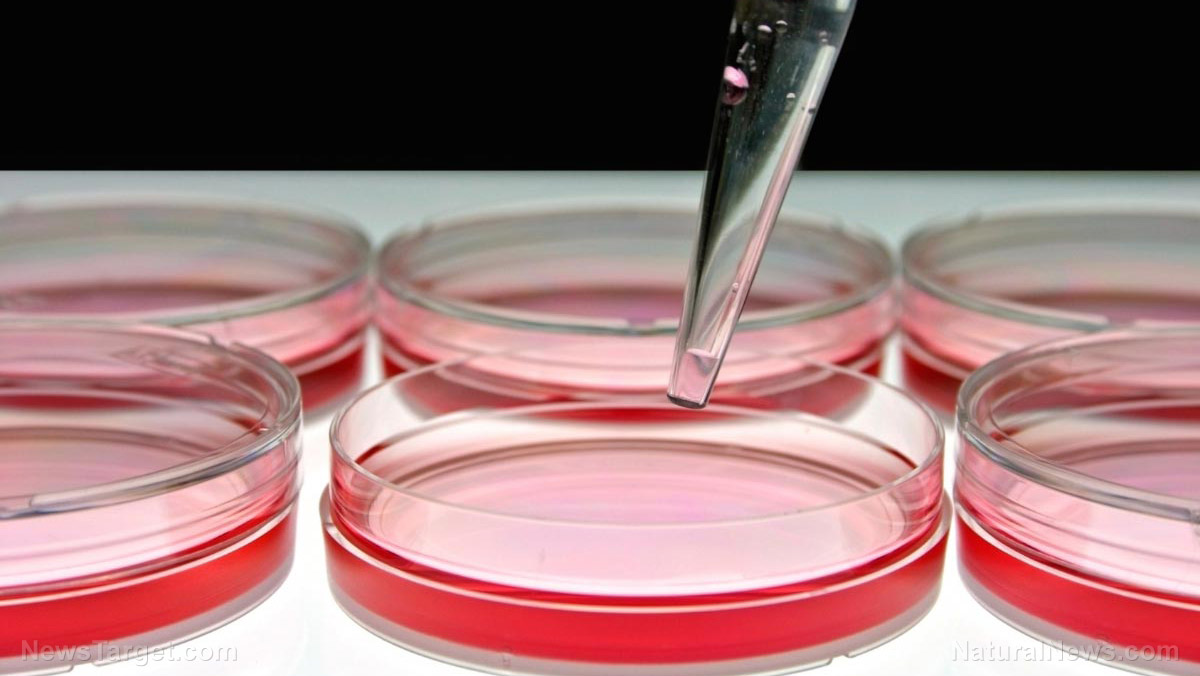Medicinal plants from Pakistan found to be effective natural cures for conjunctivitis
02/24/2019 / By Ellaine Castillo

Drug resistance due to the widespread use of antibiotics is a rising concern in the modern world. Because of this, many infectious diseases tend to last longer and have become harder to treat. Fortunately, there are a lot of medicinal plants with antibacterial properties that can be used for the treatment of these diseases.
A study by researchers from different universities Pakistan and Saudi Arabia revealed that some Pakistani medicinal plants can be used as natural remedies against conjunctivitis. This disease, which is also known as pink eye or red eye, is caused by infectious pathogens like Pseudomonas aeruginosa and Staphylococcus aureus or allergic reactions. It is often associated with a green or yellow pus discharge if it is due to bacteria, or clear of white discharge if it is of viral origin. When left untreated, conjunctivitis can potentially cause blindness so it is vital that this disease is treated immediately.
To determine which medicinal plants work against conjunctivitis, the researchers screened extracts from 36 plant species for antibacterial activity against S. aureus and P. aeruginosa strains. Their results showed that myrobalan (Terminalia chebula), pomegranate (Punica granatum), black pepper (Piper nigrum), great pignut (Bunium bulbocastanum), and Damask rose (Rosa damascena) were the most effective against S. aureus. Meanwhile, those that worked best against P. aeruginosa were great pignut, common juniper (Juniperus communis), and Armenian plum (Prunus armeniaca).
The researchers also collected extracts from 23 plant species and evaluated their antibacterial activity against clinical isolates of S. aureus and P. aeruginosa. From this experiment, they found that pomegranate, Damask rose, and tamarix (Tamarix dioica), caraway (Carum carvi), pistachio (Pistacia vera), myrobalan, and common fig (Ficus carica) inhibited the growth of S. aureus. Moreover, these same plants were effective against P. aeruginosa.
Mother Nature's micronutrient secret: Organic Broccoli Sprout Capsules now available, delivering 280mg of high-density nutrition, including the extraordinary "sulforaphane" and "glucosinolate" nutrients found only in cruciferous healing foods. Every lot laboratory tested. See availability here.
Overall, the results showed that there are many Pakistani plants with potent antibacterial properties against S. aureus and P. aeruginosa. With further studies, they can be used as alternative remedies for conjunctivitis, especially in cases that are caused by antibiotic-resistant bacteria. (Related: Antibiotic resistance is causing numerous scientists to turn to natural, holistic immunity as a better option.)
Tips for treating pink eye
Having pink eye can be a very uncomfortable experience. But, with proper treatment, it will easily go away in about a week. To help you find relief during this period, here are some tips on how you can treat pink eye from home:
- Apply a warm or cold compress over your eyes — This remedy is effective against conjunctivitis, regardless of whether it’s caused by a virus, bacteria, or allergies. A warm compress is used to prevent the buildup of discharge on your eyelids or the formation of crust on your eyelashes. Meanwhile, cold compresses are used to reduce itching and inflammation. If you have conjunctivitis in just one eye, make sure that the compress you’re using doesn’t touch your other eye so that the condition won’t spread.
- Rinse your eyes — Rinsing your eyes with cold or lukewarm water can help get rid of the cause of your conjunctivitis. This is especially true for cases due to irritants like shampoo or perfume. You can also use a saline solution made of common salt and water as an eyewash to help reduce inflammation and irritation.
- Stop wearing contact lenses — Patients with viral or bacterial conjunctivitis are recommended to remove contact lenses for up to 12 days. This is because previously worn contact lenses may house pathogens and worsen the infection. Before you start wearing lenses again, make sure to disinfect them thoroughly or better yet, get rid of them and use new ones instead.
If you’d like to read more news articles on different medicinal plants, visit NaturalHealth.news.
Sources include:
Tagged Under: alternative medicine, antibacterial, Armenian plum, bacterial infections, black pepper, Caraway, common fig, common juniper, conjunctivitis, damask rose, great pignut, herbal medicine, Herbs, medicinal plants, Myrobalan, natural cures, natural medicine, pink eye, pistachio, plant medicine, pomegranate, Pseudomonas aeruginosa, red eye, Staph, tamarix




















